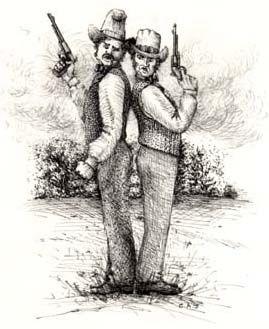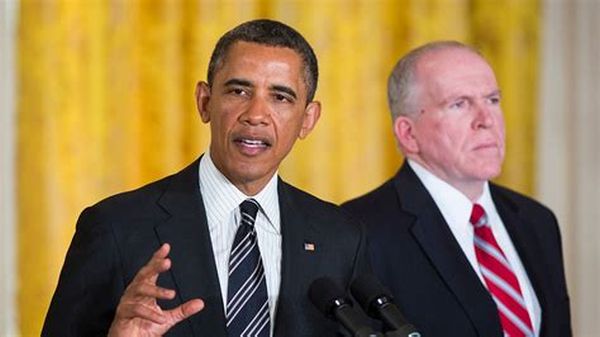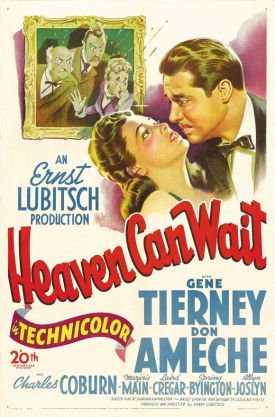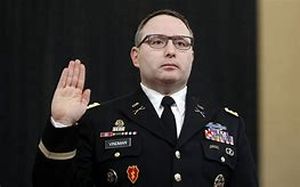The Field of Honor
From The New CriterionLast month’s review of the media (See “In Defense of Cover-ups” in the December New Criterion), in which I speculated as to the reasons why the Bush administration hardly ever took the trouble to reply to the ever shriller chorus of its critics, had gone to press only the day before it was leaked to the New York Times that the President was at last, in a Veterans’ Day speech in Pennsylvania, about to answer back. Here’s how Richard W. Stevenson and David S. Cloud reported the news for the Times: “Faced with a bleak public mood about Iraq and stung by Democratic accusations that he led the nation into war on false pretenses, President Bush is beginning a new effort to shore up his credibility and cast his critics as hypocrites.” Does that sound to you as if Richard W. Stevenson and David S. Cloud thought that the “credibility” which President Bush was trying to “shore up” was an item worthy of respect? Do you suppose they think it likely to be shored up by anything the President can say? And if the salient fact about those anonymous “critics” was that they were “hypocrites” — “Democrats” as they described them, “who voted for the war based on the same intelligence Mr. Bush saw but have switched positions, often under pressure from their party’s left wing” — does that preclude the possiblity that those critics also lie through their teeth?
Not that the President would say so if they did. Through all the months and years during which he had failed to reply to the charges, expressed and implied, that he had engaged in deliberate deception in order to send American troops to war for dark and corrupt reasons of his own, his very failure to reply had been steadily contributing to the debasement of the most serious accusation that can be made against a public servant, namely that he has acted not in good faith and for his best perception of the public good but for his private benefit instead — and at the cost of American and foreign lives. Although, as I speculated last month, the reason for his failure to defend himself may have been the cynical wisdom of the handler and the spin-doctor that answering even the most outrageous charge only gives it more currency, such failure also has the unintended side-effect of making it seem as if the President cares as little for the truth as his critics, for he has hitherto apparently thought it not worth his while to correct a falsehood at his own expense. As the Times helpfully pointed out, “among the developments most worrisome to the White House has been a pronounced erosion in the positive public view of the president’s personal integrity, a characteristic that Mr. Bush had made the backbone of his political appeal.” Little wonder, then, that “a poll released Tuesday by the Pew Research Center, a nonpartisan research group, found that 43 percent of Americans believe that the American and British governments lied about Iraq’s weapons to justify the invasion, up from 31 percent early last year.”
But hang on, how is it supposed to inspire renewed confidence in his integrity that the first news of his intention to deny the charges against him came in the form of a leak to the media — in particular to the New York Times. Messrs Stevenson and Cloud continued:
“It will be the most direct refutation of the Democrat charges you’ve seen probably since the election,” the official said, speaking on the condition of anonymity to outline a strategy that has not yet become public and will play out over several weeks through presidential speeches, close coordination with Republicans on Capitol Hill and a stepped-up effort by the Republican National Committee.
Oh, so the denial is part of a “strategy” is it? To the media with their ostensible — and ostentatious — fetish of “objectivity,” truth and falsehood must always be problematical and uncertain, matters to be remarked upon only with the greatest of caution, but “strategy” is the one permanent certainty. In the same way, the Times’s analysis by Mr Stevenson and Douglas Jehl remarked that “with Mr. Bush politically weakened, the Democrats emboldened and public support for the war ebbing, the White House is building two main lines of defense.” Did he lie or didn’t he? We profess not to know, but if you want to understand why he is now employing a “strategy” of denial, you only have to look at the poll numbers. Thus was the President’s self-defense discounted in advance — and with the connivance of that same administration “official” who, as the Times dutifully informed us, was “speaking on the condition of anonymity.” You didn’t hear it from me but the President is going to deny that he’s a liar and corrupt. There’s a resounding “refutation” for you!
And when President Bush’s own reply did come, it was scarcely more indignant or expressive of outraged innocence. Never mind, it was enough to serve as the inauguration of the vicious personal exchange that the media so longed for: “President Bush and leading congressional Democrats lobbed angry charges at each other Friday in an increasingly personal battle over the origins of the Iraq war,” as the Washington Post reported.
“It is deeply irresponsible to rewrite the history of how that war began,” Bush said as he used a Veterans Day address here to lash out at critics. “These baseless attacks send the wrong signal to our troops and to an enemy that is questioning America’s will.” Democrats retaliated with a barrage of statements accusing the president of skewing the facts, just as they maintain he did in the run-up to the invasion of March 2003. . .The fierce back-and-forth underscored how central Iraq has become in the political environment leading into next year’s mid-term congressional elections. After a succession of setbacks for Bush, including slow hurricane relief and a failed Supreme Court nomination, his public standing in opinion polls has tumbled to the lowest level of his presidency.
So, sure enough it seems, it’s all a matter of “strategy” on both sides, and the truth must remain forever obscure except to the extent that we allow ourselves to assume that both sides must have a piece of it. Do you begin to see the wisdom of the spin-doctor’s dictum that it is always better for a politician not to answer even the most scurrilous of charges? Those whose job it is to play upon American democracy like a fiddle have come to the conclusion that we are officially not a mature but an immature democracy, and that because we pay only partial attention to political matters, we will also remain content with only partial and erroneous knowledge. For do we not know already that all that is said on both sides is a mélange of truth and falsity cobbled together for strategic purposes?
The media are naturally happy to encourage us in this assumption because it provides a role for them in sorting out the truth and the falsity. As the Washington Post helpfully summed up the President’s speech:
President Bush and his national security adviser have answered critics of the Iraq war in recent days with a two-pronged argument: that Congress saw the same intelligence the administration did before the war, and that independent commissions have determined that the administration did not misrepresent the intelligence.
“Neither assertion,” it added, “is wholly accurate.” Ah, but is it accurate enough? Is it accurate within the terms it needs to be accurate in if it is to establish the President’s point, namely that he hadn’t lied? The Post does not say, but instead allows its correction of irrelevant inaccuracies — principally that the administration had access to more intelligence than was available to Congress — to imply that he must have lied at least a little bit. After all, isn’t he lying now that he says Congress had the same intelligence he did? The answer is that he is not, unless it can be shown that the intelligence which he had and which Congress did not was of an entirely different tendency from that of the intelligence that has already been made public. So far as I know, no one has offered any evidence that this is the case, and there are indeed plenty of reasons for supposing that the hidden part of the intelligence iceberg consisted of very much the same sort of material as the visible part. But again and again, the administration’s unpublished intelligence was treated in the media as being of crucial significance. “The White House is right that many Democrats, including some of the same senators who are now criticizing Mr. Bush most vociferously over the war, expressed concerns about Iraq’s weapons programs in the months and years before the invasion,” acknowledged Stevenson and Jehl of The New York Times. “But many of those Democrats have said that they now believe they were misled by the administration in the way it presented the prewar intelligence.”
In all this insinuation, there is never any direct look at the only question that matters, which is this: if some Democrats, or anyone else, say “they now believe they were misled by the administration” what is the evidence for that belief? Where do they find any reason at all for believing that the President or anyone in his administration acted in bad faith in providing the intelligence estimates that both parties, the Clinton administration and every foreign government with intelligence about Iraq also believed. Stevenson and Jehl continue: “But what Mr. Bush left unaddressed was the question of how his administration used that intelligence, which was full of caveats, subtleties and contradiction, to make the case for war.” Mr Bush did not leave this question unaddressed; he paid the media and the opposition, who are increasingly the same, the unjustified compliment of assuming them to be wise enough in the ways of the world to know that all intelligence is full of caveats, subtleties and contradictions, most of which must be ignored if any action is ever to be taken about anything on its basis. It is merely disingenuous to suppose that, with the wisdom of hindsight, a “caveat” which went against the whole tendency of the rest of the intelligence should have been heeded and all the rest disregarded if the administration was not to be adjudged guilty of “deception.” Who, not blinded by partisan fury, could believe that?
At a news conference Monday on Capitol Hill (reported Stevenson and Jehl), Senator Harry Reid of Nevada, the Democratic leader, ran through a list of topics the administration had cited to show that Iraq was a threat that had to be dealt with, including Mr. Hussein’s efforts to acquire nuclear material and aluminum tubes that could be used in a nuclear program and terrorist training camps in Iraq.
“All of these things simply were not true,” Mr. Reid said. “The administration knew that, but they did not share that with me or anyone else in Congress that I know of.”
What is the key statement here? “The administration knew that. . .” And for this astonishing accusation, which would be grounds for impeachment if true, what shred of evidence does Mr Reid supply? Why, none at all! He doesn’t have to when the media report his scandalous assertion as if it were truth — or at least a reasonable strategic gambit on his part — and when President Bush in defending himself against the charge appears to regard it with no more the sense of outraged innocence than he shows about any other attack by the opposition. On the contrary, it is the Democrats who continue to be outraged even by the President’s self-defense! According to Senator Kerry, Mr Bush’s opponent in the most recent election, this half-hearted attempt by the latter to re-assert his integrity and good faith amounted to “playing the politics of fear and smear on Veterans Day.”
Presumably the Senator does not regard charges of mendacity and bad faith as a “smear,” since he has made them himself, but only the attempt to answer them. It is a bit of passive-aggressive hypocrisy typical of the man who, but for 100,000 votes in Ohio, would be our president today. In the same way, a couple of weeks later, the Senator sought to attack the Republican Speaker of the House, Dennis Hastert, by alleging that he had impugned the personal courage — and thus by an ancient convention going back to Achilles but sometimes thought to be now outmoded, the manhood — of Congressman John Murtha of Pennsylvania. Senator Kerry professed to find this mortal insult in Speaker Hastert’s allusion to Congressman Murtha’s call for an immediate American pull-out from Iraq when he insisted that “we must not cower before the insurgency.” It takes a certain amount of ingenuity to make that into a smear, I think, let alone an attack on the honor of a decorated veteran like Congressman Murtha, but Speaker Hastert — who, like Vice President Cheney, was vulnerable to the charge of being a “chicken hawk” through never having served himself — scurried out from under the accusation with as much alacrity as if he had been charged with cowardice.
In other words, the real smear, turned out to be in the claim that Mr Hastert had smeared Mr Murtha in the first place. Senator Kerry had had practice in such smears when he claimed during the 2004 campaigns that Republicans had attacked the badly disabled Vietnam veteran and then Senator from Georgia, Max Cleland — though it was Cleland’s patriotism rather than his honor which was then said to have been called into question. But by purporting to defend the by-then ex-Senator Cleland, he was also defending himself, it was clear, against the devastating ads about him that were employed by the Swift Boat veterans during the campaign. With the attack on Speaker Hastert, he was again adopting the same tactic. “You and I have to make it absolutely clear that we won’t stand for Republican ‘Swift Boat’ style attacks on Jack Murtha,” as he wrote in a fund-raising letter, according to the New York Times, modestly giving the priority not to his own imagined wrongs at Republican hands but to those of others. In doing so he found it convenient to pretend for the moment to a belief in the old-fashioned idea that aspersions cast on a man’s courage or truthfulness were the worst things you could say about him. Of course this standard ceased to apply when such aspersions were cast at the Bush administration.
In fact, Congressman Murtha had himself impugned the honor of Vice President Cheney when in the course of denouncing the administration’s policies in Iraq he had made reference to the Vice President’s student deferments during the Vietnam War. There was on this occasion no Republican version of Senator Kerry to ride to the Vice President’s rescue. No one, least of all Mr Cheney himself, had thought it worthwhile to make a fuss about what would once have been thought an insult requiring a challenge to mortal combat. In a speech at the American Enterprise Institute, Mr Cheney responded to the Congressman’s aspersions against him by calling him “a good man, a marine, a patriot.” According to the New York Times, “the Vice President made clear that he was distinguishing between his personal regard for Mr. Murtha, a Vietnam veteran, and what he considered the consequences of Mr. Murtha’s proposed policies.” Yet the charge of cowardice, like that of lying, was precisely not a matter of policy but a personal slur that had to be noticed as such if the administration was to have any success in fighting back against accusations which, if true, would make it as truly despicable as its enemies were representing it as being. Here was a clear occasion, if ever one was, when the spin doctor is of no use and a man has to answer an attack on his manhood as a man.
All the same, it’s easy to see why neither the President nor the Vice President would have wanted to do this. Just as, in sporting conflicts, it’s more likely to be the physical reply to physical or verbal provocation which is seen by the officials, not the provocation itself, so a politician responding to attacks on his morality or honor, as opposed to his policies, is likely to look weak and defensive. We are still in that post-Watergate world where Richard Nixon’s saying, “I’m not a crook,” looks to most people as the most damning of confirmations that he is a crook. Vice President Cheney was doubtless only following the best public relations theory and practice in pretending not to notice that he had been called a coward, just as President Bush was before November 11th in pretending not to notice that he had been called a liar. But how I longed to hear the Vice President set an example — as doubtless his distinguished precdecessor in that office, Aaron Burr, would have done, by saying something along the following lines: “If Congressman Murtha would care to meet me at a time and place of his choosing, and also to choose his weapons, I will be happy to try before him and before such other gentlemen as he may suggest which of us may properly be accounted a coward. For if he refuse, his own cowardice will be manifest.”
Pipe dreams, of course. Those days are gone forever, though the cultural memory of honor’s claims and honor’s demands appears to remain alive to the extent that what passes for mortal insult — at least in its capacity to generate genuine-looking emotion — lives on not in the charge of cowardice itself but the charge that you have charged someone else with cowardice and so, presumably, damaged his self-esteem. But because of the asymmetry of the media’s approach to the administration and its critics, which means that the charges of cowardice or mendacity can still travel in one direction but not the other, neither the President or the Vice President had available to him the resources of outrage available to Senator Kerry and the other Democrats. The result was the half-apologetic denials, almost worse than no denials at all, that they were the “human scum” (to use a term employed about them by that eminent moral authority, the actor John Cusack) their political opponents attempted to characterize them as. It’s a pity, and not least for the opposition itself, that the language of outrage has become thus commonplace and debased. God knows what will serve us in its stead if we ever need to use it against a political tendency that really is based on lies.
Discover more from James Bowman
Subscribe to get the latest posts to your email.







